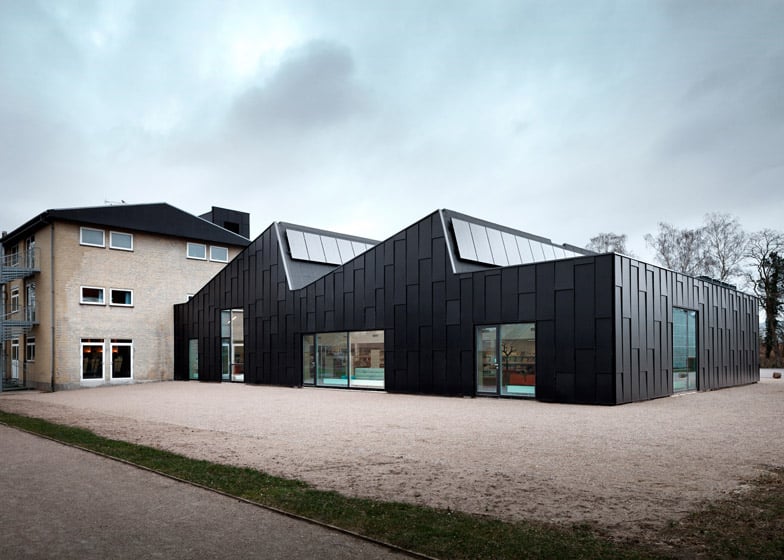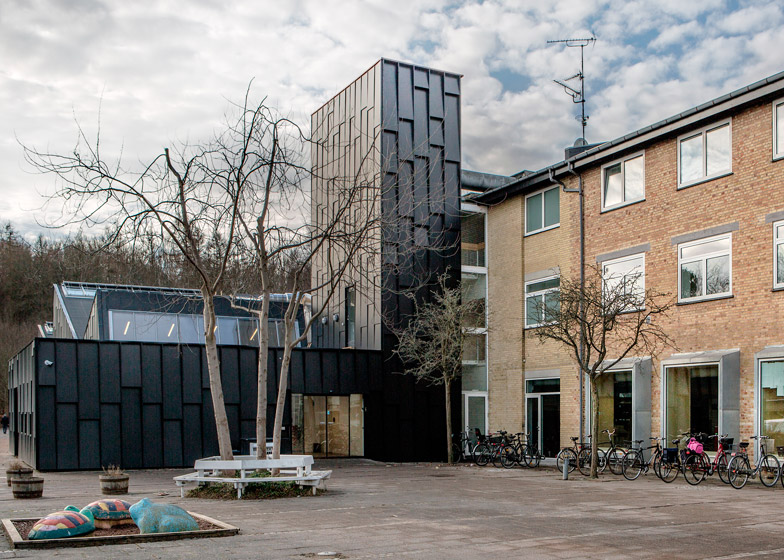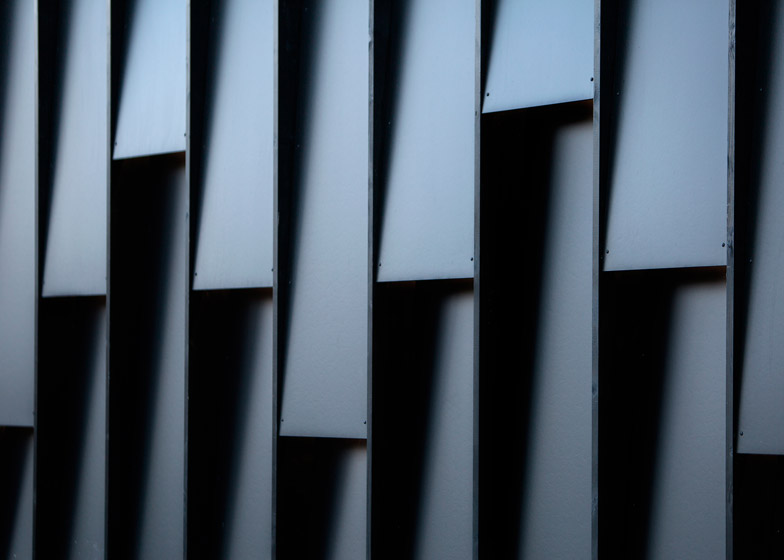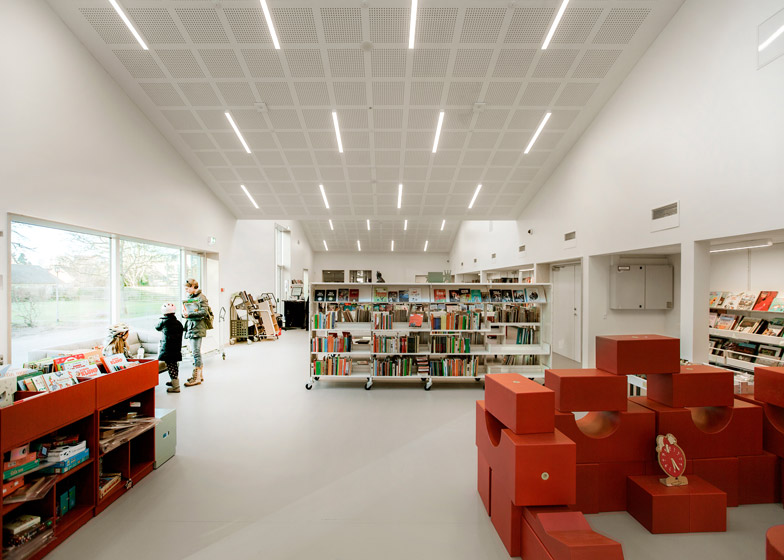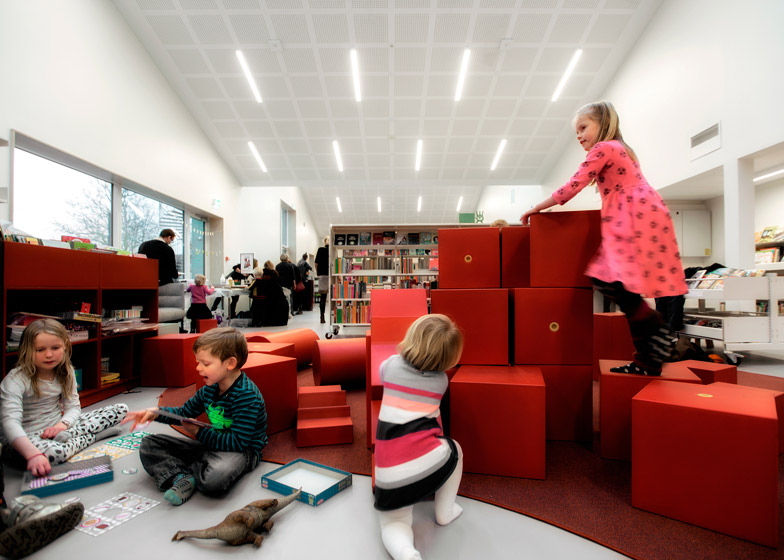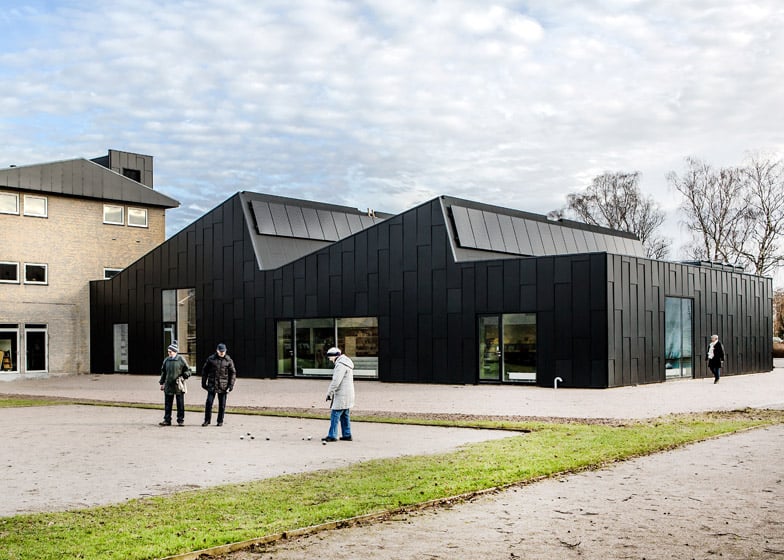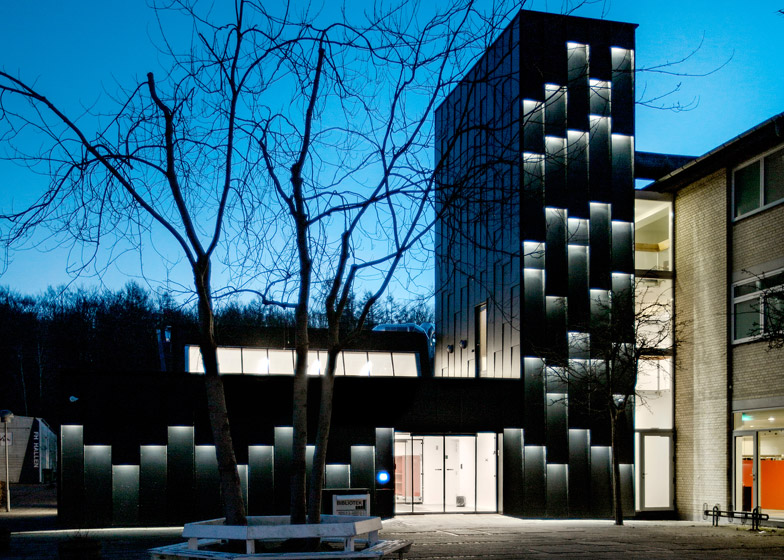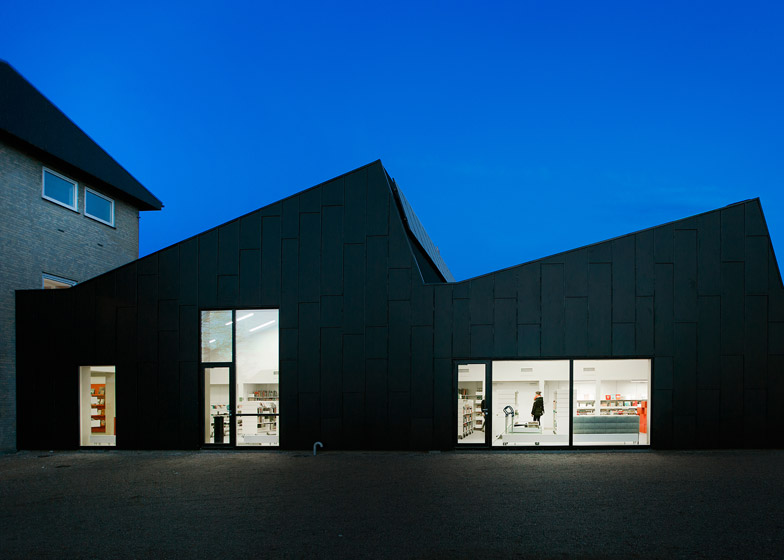A sawtooth roof with integrated skylights and solar panels gives this library and cultural centre in Denmark an industrial aesthetic that references its location at an old furniture factory (+ slideshow).
Designed by Copenhagen studio Primus Arkitekter, the new facility in Allerød occupies a 1930s building that previously housed the offices of a factory operated by the Fritz Hansen furniture brand – the manufacturer of products including Jaime Hayón's Ro armchair and Arne Jacobsen's Grand Prix chair.
The architects refurbished and extended the building to make it suitable for its new use as a cultural centre and library, as part of a larger masterplan for the centre of Allerød that includes new urban spaces and the expansion of a local repertory theatre.
The extension is divided along its length into two spaces, with the new children's library occupying the side that adjoins the brick building housing the main library.
The other half of the new addition functions as a cultural centre containing a multipurpose community hall, and a theatre and events space that can be subdivided using folding wooden partitions.
Both spaces feature high, sloping ceilings with integrated skylights that illuminate the interiors and help improve acoustics within the large rooms. The ridges in the roof's profile also provide an appropriate point for the partition in the cultural centre.
"The extension houses the children's library and we wanted to give them a sense of spatial generosity and abundance of natural light that could support these and future functions in a flexible building," architect David Bülow-Jacobsen told Dezeen.
"Thus we chose to make the floor plan very open and rational, while the roof section subdivides the space with varying ceiling heights," he said.
Externally, the building's shed-like form and material treatment recall the site's industrial heritage. The entire exterior is clad in lapped black wooden panels that add texture to the surfaces.
"The panels were chosen to add scale and materiality to the building and were also used to clad an existing elevator tower added in the 1980s to create a coherent volume," Bülow-Jacobsen said.
Solar panels positioned on the steeper sections of the roof blend in with the black surfaces, while lighting integrated into the underside of the slanted panels creates a tessellated pattern of light and shadow on the elevation facing a public square.
Two upper storeys within the existing building were refurbished as part of the project to accommodate a community centre and offices for the library. Large openings in the walls allow spaces on the ground floor to open out to the public square.
Bülow-Jacobsen and partner Per Appel established Primus Arkitekter in 2008. Other projects by the studio include a small oak-clad house in Zealand, Denmark.

